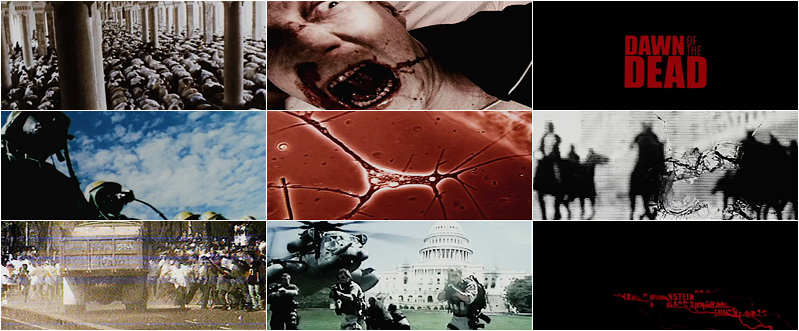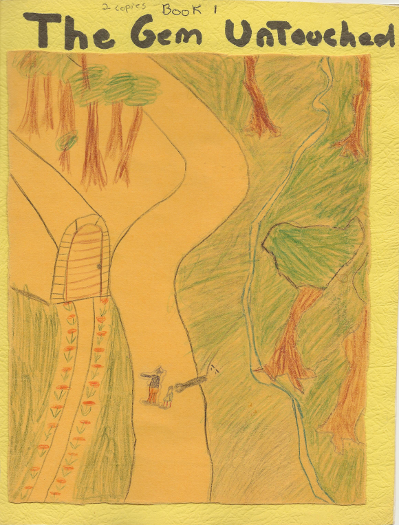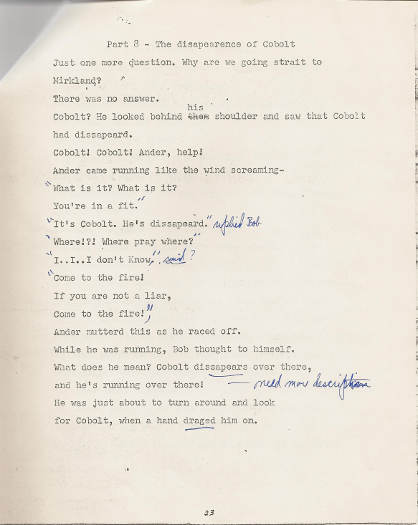UPDATE: They posted a short slideshow of pics from last night. I am here. That’s me dressed in my Super Cool Author costume, reading my story Rust on the Tongue.
Short version: I did not win. Medium version: I had a great time, got a little drunk, got to see my agent and her lovely, not-yet-ground-down-by-lit-life assistant, and did not win.
Long version: The Duchess and I arrived at The Slipper Room at about 6:50pm, and there was already a long line of people waiting to get in, which is always a good sign when anything resembling a literary reading is going on. But I’ve done readings in bars before, and I know how it goes: The majority of the people are a) lured in by the drinks specials or b) there as friends of some other writer. You end up shouting over the belligerent drunks until, being slightly and belligerently drunk yourself, you crowd-surf, throwing punches and curses until you find yourself staring up at the sky lying in a puddle of your own urine and blood out back by the dumpster.
Luckily, I had The Duchess with me, which meant my own physical danger was lessened. She’s a formidable woman.
We opted to have a slice of pizza beforehand, mainly because I’d been talking about whiskey the whole walk over and The Duchess was getting nervous about managing me later, and wanted food in my stomach. While we were eating, one of our neighbors from Hoboken walked in. I stared at him and he stared at me; neighbors so rarely show up in your real life it’s strange when you run into them. It was a bit awkward. Made worse when we found out one of his friends was reading as well, and he was there to support him. We made conversation for a bit and then he backed out of the restaurant and made for the bar. Now whenever I see him around the block we will have to made awkward conversation about running into each other at Literary Upstart. I may have to move away.
Inside the bar, there was a roiling crowd already. $1 beers will stir up some passion. I introduced myself to the MC and he explained the basic process: Five of us would read our stories, and we’d remain on stage while the other read. Then there would be an intermission, then trivia, then we would all assemble on stage again to have our stories critiqued by the judges and then a winner would be announced. This sounded horrible. Critiqued on stage while I had to stand there, grinning? I am not a brave man. I started ordering whiskies. Normally, I like to go in the middle of a pack of readings. Gives me time to get drunk, to judge to mood of the room, to chant internally superstar in an effort to convince myself that I am, indeed, a superstar. I had barely finished three double Jamesons, neat, when I was announced as the first reader of the evening. Staggering up to the microphone, I had one of those moments where you feel like you’ve swallowed something awful and large: I was sweating, out of breath, nervous. I still read pretty, well, I think. At any rate, I did not pass out, vomit, or have my pants fall down with some ridiculous cartoon whistle in the background, and these are all good things.
The other readers did well, too, although only one story really grabbed me and made me jealous. One of the authors was visibly shaking as they read, and I thanked Jamesons for sparing me that.
During the intermission, I had a few more drinks and told the other authors they were geniuses. They told me I was a genius too. Except one, who just nodded, accepting the compliment as their due. I started to get angry, then wished I had that kind of crazy confidence, and got depressed. The Duchess sent me to the bathrooms so as not to cry in front of all the hipsters.
The bathrooms in The Slipper Room are amazing. As long as your definition of amazing includes mold, damp, narrow bathrooms you cannot turn around in with locks on the doors which are theoretical at best. The toilet seats were always down, forcing me to touch what appeared to be the filthiest surface in the universe. If I die of some alien flesh-eating bacteria tomorrow, you will know why, and avenge me. While I was using one bathroom, a girl walked in on a guy using the one next to me, and there was such a flurry of screaming and activity I wondered what in the world he’d been doing in there. Another bathroom had no sink, and various people had scrawled sink-related graffitti, like dude, where is the sink? and seriously, what happened to the sink? The Duchess, upon hearing this, wondered who brought Sharpies into the bathroom with them.
The trivia portion of the evening was drowned out by drunken conversation. This is what happens in bars. When the friends of the event organizers try to shout down the people who just came out for a few drinks and some conversation, I wonder if they’ve ever been in a bar before, and if shouting down loud drunken people has ever, in the history of booze, worked. I suspect the answer is no, and it did not work that night either.
Back on stage, I had to stand and listen to the judges’ critique of my story. They were gentle and humorous. At one point the mood of the story was compared to Kafka, and my agent, bless her, suddenly howled in laughter as if this was the funniest thing she’d ever heard. I pretended to be outraged, but my agent is wise to my tricks and simply ridiculed me more, which is really how I need to be handled.
I didn’t win.
As we got ready to leave, people came up to me to tell me they really liked my story. While waiting in line for the bathroom again downstairs a guy slapped me on the shoulder and told me I’d been great, and asked if I knew I was going to be critiqued like that. He seemed like someone who’d come to get drunk on a Monday night and accidentally attended a literary reading, but had enjoyed himself. Strangely enough, so had I.







